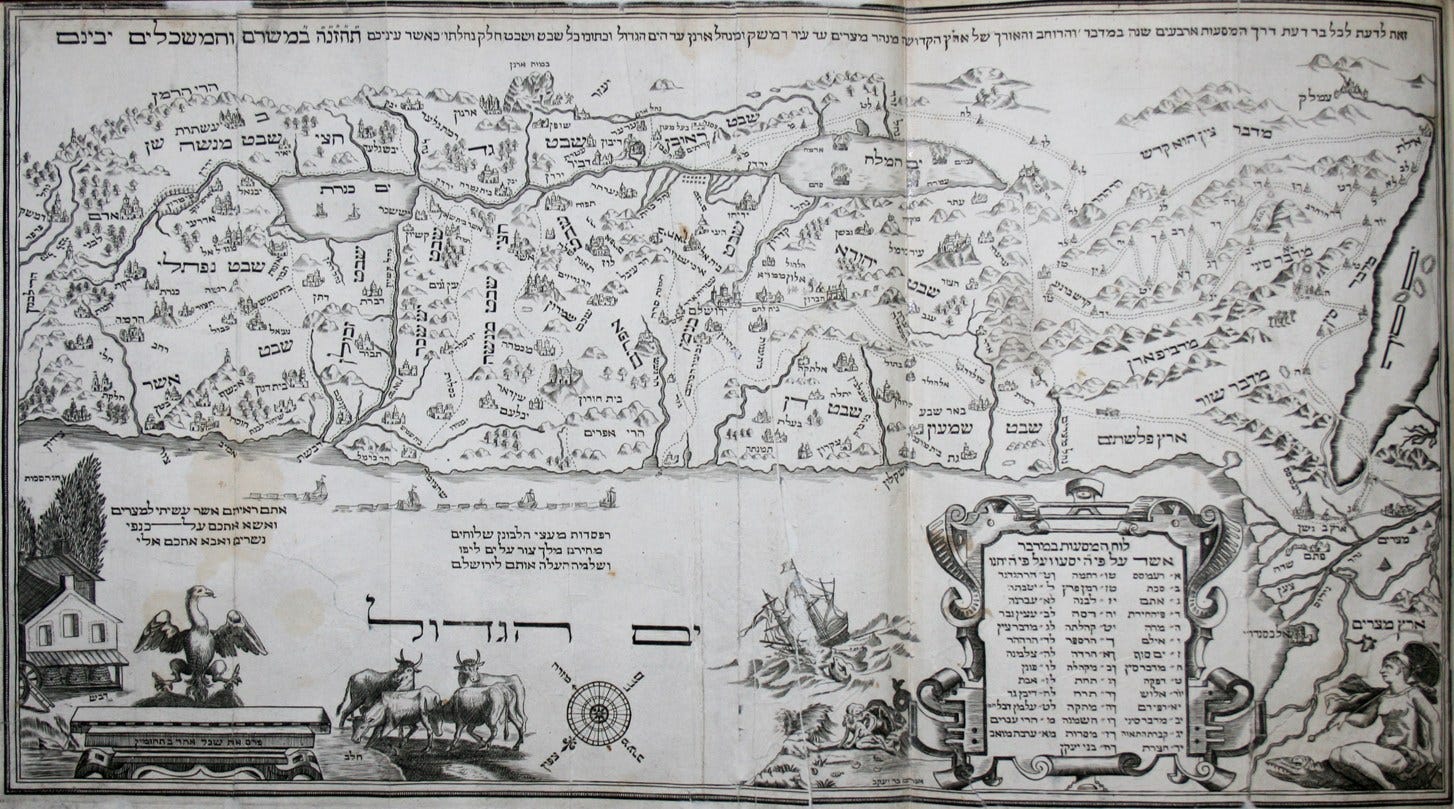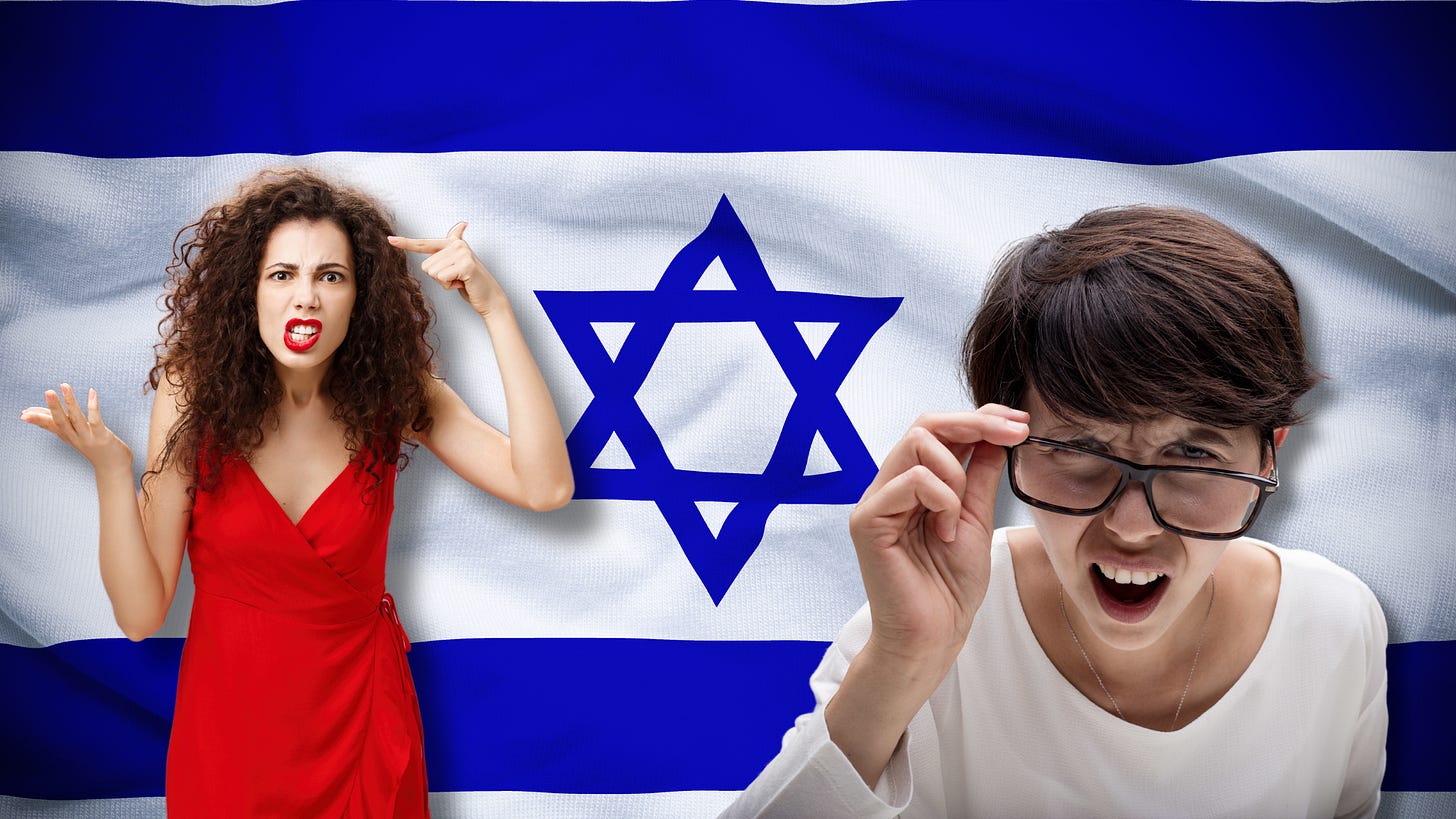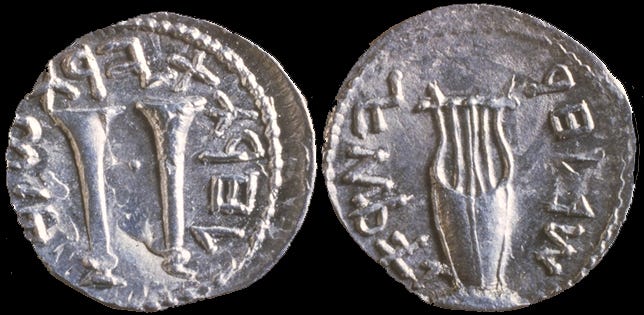Israel should be the poster child for 'woke' progressives.
Oh, the irony: It is the very terms which these “woke” progressives cherish that are indeed near and dear to Israel and Zionism.
Please consider supporting our mission to help everyone better understand and become smarter about the Jewish world. A gift of any amount helps keep our platform free of advertising and accessible to all.
You can also listen to the podcast version of this essay on Apple Podcasts, Google Podcasts, and Spotify.
There is a famous quote from Mark Twain that goes like this:
“The difference between the almost right word and the right word is really a large matter — it’s the difference between the lightning bug and the lightning.”
Twain was spot on, of course, alluding to a major problem with language nowadays, especially in the social media era. What gets exaggerated gets likes and shares. Buzzwords are provocative and profitable. And truth is banal or just boring.
Hence why dozens of terms have been grossly misused during the Israel-Hamas war, most notably by “woke” progressive types who seem to despise Israel and Zionism more than the actual problems in their cities, communities, and countries.
Yet it is the very terms which these “woke” progressives cherish that are indeed near and dear to Israel and Zionism — terms such as decolonization, native peoples, self-determination, ethnic studies, humanitarianism, multiculturalism, and DEI (diversity, equity, and inclusion).
Let’s take a look at each one:
1. Decolonization
As with many terms that are hash-tagged, commercialized, and weaponized, decolonization has been distorted and casually thrown around online, in academic discourse, by the media, and across so-called social justice spaces. This causes people to either dismiss the term entirely, or engage with it in a way that displaces indigenous narratives so central to their movements.
Such is the story of the Jewish People, which for 2,000 years was continuously subject to the aforementioned erasure, extraction, and oppression virtually wherever our predecessors went. Yet for these 2,000 years, since the fall of the Second Temple in Jerusalem, we’ve been yearning to return to the Land of Israel, our obvious indigenous homeland.
Hence why this 2,000-year Jewish dream is explicitly embedded into the Israeli national anthem “HaTikva,” which was adopted from a poem written in 1878 (two decades before the First Zionist Congress convened, and 70 years before the State of Israel was founded).
“Our hope is not yet lost, the hope of two thousand years,” the anthem’s lyrics go, “to be a free nation in our own land, the land of Zion and Jerusalem.”
Call it a coincidence? I think not.
We know as a matter of fact that the birthplace of the Jewish People is called the Land of Israel (in Hebrew: Eretz Yisrael). There, a significant part of our nation’s long history was enacted, of which the first thousand years are recorded in the Hebrew Bible.
Moreover, the Jewish People’s cultural, religious, and national identities were formed in the Land of Israel; and there, our physical presence has been maintained through the centuries, even after the Jewish majority was forced into exile.
During the many years of dispersion, the Jewish People never severed nor forgot its bond with the Land. After all, an enormous amount of archeological research clearly reveals the historical link between the Jewish People, the Hebrew Bible, and the Land of Israel.
2. Native Peoples
It all started with Abraham, Isaac, and Jacob — patriarchs of the Jewish People — who settled in the Land of Israel. Famine forced them, the Israelites, to migrate to Egypt. Moses eventually led the Israelites back to Israel, after 40 years of wandering in the desert. The joke is that, with all due respect to Moses, he led us back to the only place in the Middle East that does not have oil.
Historical records testify to the existence of Hebrew from the 10th century BCE to the late Second Temple period, after which the language developed into Mishnaic Hebrew. From about the sixth century BCE until the Middle Ages, many Jews spoke Aramaic, a related Semitic language.
Circa 1020 BCE, the first Jewish monarchy was established by King Saul, and King David made Jerusalem our capital just 20 years later. A few decades down the round, King Solomon built the First Temple, the Jewish People’s national and spiritual center.
But then the Jews did what we do best: They started arguing, and the kingdom was divided into two, Judah and Israel. Significantly weaker as a result, the Assyrians crushed the Jewish populace and 10 tribes were expelled, which is how “the 10 Lost Tribes of Israel” originated. Eventually, the First Temple was also destroyed and most Jews were exiled.
Some 50 years later, many Jews returned from Babylonia and rebuilt the temple, known as the Second Temple. After a couple of centuries, land in Israel was conquered by Alexander the Great, and Hellenistic rule ensued. Jews known as the Maccabees revolted against restrictions on Jewish practices and desecration of our temple, leading to Jewish independence — until the Romans arrived and subsequently ruled the Land of Israel.

Again, the Jews revolted, which led to the destruction of Jerusalem and the Second Temple, the last stand of the Jews at Masada, and the Bar Kokhba uprising. According to Josephus, a Roman-Jewish historian and military leader, over a million non-combatants Jews died, and tens of thousands were enslaved.
While a minority of Jews have lived in and around Jerusalem since then, this watershed moment, the Second Temple’s destruction — the elimination of the symbolic center of Judaism and Jewish identity — motivated many Jews to formulate a new self-definition and adjust their existence to the prospect of an indefinite period of displacement.
During the Middle Ages, due to increasing migration and resettlement, Jews divided into distinct regional groups which today are generally addressed according to three primary geographical groupings: the Ashkenazi of Northern and Eastern Europe, the Sephardic Jews of Iberia (Spain and Portugal), and the Mizrahi Jews of North Africa and the Middle East.
Meanwhile, in the the Land of Israel, foreign domination endured, including by the Byzantines, the Arabs, the Crusaders, the Mamluks, the Ottomans, and the British.
In the seventh century, the Arab Rashiduns conquered the Muslim conquest of the Levant; they were later succeeded by other Arabic-speaking Muslim dynasties, including the Umayyads, Abbasids, and the Fatimids. During the next several centuries, the population of Palestine (named by the Romans) drastically decreased, from an estimated one million during the Roman and Byzantine periods, to about 300,000 by the early Ottoman period (the early 16th century).
Over time, much of the existing population adopted Arab culture and language and converted to Islam. Hence, the region was not originally Arab. Its Arabization was a consequence of the gradual inclusion of Palestine within the rapidly expanding Islamic Caliphates established by Arabian tribes and their local allies.
The settlement of Arabs before and after the Muslim conquest is thought to have played a role in accelerating the Islamization process. Some scholars suggest that by the arrival of the Crusaders, Palestine was already overwhelmingly Muslim, while others claim it was only after the Crusades that the Christians lost their majority, and that the process of mass Islamization took place much later, perhaps during the Mamluk period (from the mid-13th to early-16th centuries).
For several centuries during the Ottoman period, the population in Palestine declined and fluctuated between 150,000 and 250,000 inhabitants, and it was only in the 19th century that rapid population growth began — aided by the immigration of Egyptians and Algerians, as well as the subsequent immigration of Algerians, Bosnians, and Circassians.
This is all to say that the Jews are evidently indigenous to the Levant (the Eastern Mediterranean region of West Asia, including Israel), not the Arabs; most of the latter arrived to this region from the Arabian peninsula, which today comprises Bahrain, Iran, Iraq, Kuwait, Oman, Qatar, Saudi Arabia, the United Arab Emirates, and Yemen.
3. Self-Determination
Zionism (Jewish self-determination) has been vilified for its very success in transforming Jewish victims into sovereigns, which ought to be the very goal of progress: to move away from victimhood to self-determination.
Does Jewish self-determination contradict Palestinian self-determination? It depends on how you look at it.
If you believe in the Palestinians’ so-called “right of return” for the 30,000 or so remaining refugees from the 1948 Israeli-Arab War, then yes, it does.
But if you believe that the overarching goal of a refugee group is to resettle in other places (perhaps with concessions and/or reparations), then no, Jewish self-determination does not contradict Palestinian self-determination.
The latter view promotes peace and prosperity for both Jews and Palestinians in the Middle East. The former one encourages more violence, destruction, and death on all sides.
4. Ethnic Studies
Ethnic studies is the education of the histories, experiences, cultures, and issues of racial-ethnic groups. Jews are not a “race” but constitute a people or nation. Traditionally, Jewish texts refer to the Jewish People as “Israel.”
DNA studies1 and archaeological evidence show that the Jewish People originated in the Middle East. Owing to Jews’ historical dispersion around the world however, Jews also belong to several Jewish ethnic groups, all of which are represented in the modern State of Israel.
The largest Jewish ethnic group in Israel, about 40-to-45 percent of the country’s total population, is called Mizrahi, which means “Eastern” in Hebrew. Mizrahi Jews’ ancestors hailed from Jewish communities in the Middle East, including Israel itself.
The word Mizrahi often describes Jews from North Africa, too. However, these Maghrebi Jews descend from different groups than other Mizrahi Jews. Some North African Jews’ ancestors came from local communities. Others migrated there from the Iberian Peninsula after Spain expelled its Jewish population in 1492.
The expulsion of these Sephardic communities, as Iberian Jews are called, scattered Sephardi culture throughout areas such as Greece, Turkey, the Balkans, Italy and Morocco. Thus, many Jews whose families came to these regions are genealogically and culturally Sephardi. Yet, Sephardi Jews also include people whose Jewish ancestors adopted the traditions of Iberian Jews.
The second-largest ethnic Jewish group in Israel, about 32 percent of the population, is Ashkenazi. Ashkenazi Jews trace their ancestry to central Europe, most often via Eastern Europe.
Alongside these three dominant groups — Mizrahi, Sephardi, and Ashkenazi — are Jews from unique communities that do not fit neatly into the three major subdivisions, yet sometimes find themselves included under the Mizrahi umbrella. These include the Bene Israel of India, several groups of Kavkazi (or Caucasus Jews) which refers to their origins in the Caucasus region of Central Asia, Bukharan Jews of Uzbekistan, and Ethiopian Jews.
5. Humanitarianism
Some could argue that Jews were among the first humanitarians on planet Earth. (Read the 613 commandments for reference.) Therefore, it is no surprise that Zionism manufactured a profoundly humanitarian society in which, for example, Israelis and Israeli organizations routinely offer all types of support to places across the world plagued by conflict and disaster.
One of my favorite organizations in Israel, Save A Child’s Heart, provides cardiac healthcare to children worldwide, by flying them to Israel for surgery and then rehabilitation, before sending them back to their country of origin — all free of charge.
More recently, Israel has taken unprecedented humanitarian steps in its war against Hamas, including “humanitarian pauses” — a term that seems to have been invented specifically for and only applied against Israel.
But don’t just take it from me. John Spencer, the United States Military Academy’s urban war strategist who served two tours in Iraq, recently visited Israel and wrote that the Jewish state “has taken more measures to avoid needless civilian harm than virtually any other nation that’s fought an urban war.”2

6. Multiculturalism
Zionism has produced a unique form of multiculturalism that combines European, Middle Eastern, Arab, North African, and Western influences — stemming from the Jews’ fundamental belief in freedom (e.g. freedom of expression).
“Since ancient times, in every place they have ever lived, Jews have represented the frightening prospect of freedom,” wrote novelist Dara Horn. “As long as Jews existed in any society, there was evidence that it in fact wasn’t necessary to believe what everyone else believed, that those who disagreed with their neighbors could survive and even flourish against all odds.”3
For instance, there are more than 400 mosques in Israel, which have increased five-fold since the late 1980s. And some 300 imams receive monetary grants from the Israeli government.4
Another interesting tidbit: Inter-ethnic marriage in Israel is among the world’s highest. In the U.S. and U.K., for example, it is less than 20 percent.
But sure, keep telling us about the prolific Israeli apartheid.
7. DEI (Diversity, Equity, and Inclusion)
Israel is home to more than 2 million people who are not Jewish — primarily Arab Israelis who make up 20-to-25 percent of the population, and more than 100,000 foreign workers. Most Arab Israeli citizens are Muslim, and small minorities adhere to various Christian denominations, as well as the Druze religion.
Jonathan Elkhoury, an Lebanese-Israeli Christian who was allowed to immigrate from Lebanon to the Jewish state as part of a deal that Israel made with the South Lebanon Army in the 1980s, had this to say:
“Why do I defend Israel? Because Israel is the home that sheltered me after my real home, Lebanon, rejected me. Because my identity was the path for the truth and justice. I am with Israel because I am with the truth.”
“You want to say that Israel took the Palestinians’ land. What land? The Palestinians wanted to take my land in Lebanon and committed the worst massacres against my people to build their alternative state. I defend Israel because I live here as a human being.”5
Loay Alshareef, an Arab peace activist, recently met two Arab Israelis in Dubai who “expressed pride in being Israeli.” Alshareef added that:
“They shared that they would not prefer living under Hamas or even the Palestinian Authority, highlighting their satisfactory employment, home ownership, and the decent living standards provided by Israel.”6
Sophia Salma Khalifa was born in northern Israel and became the first Muslim Arab Israeli to enroll in the Israel Defense Forces’ “Atuda” program for electrical engineering. She is now a tech entrepreneur with a master’s degree from Stanford University.
On a recent podcast, Khalifa said:
“I have to speak the truth. If I am the one who lived the truth and lived that reality, then I’m obligated to speak up. Israel is not an apartheid state. Israel is a strong, beautiful, multi-ethnic democracy.”
“Israel gave me everything. I am the product of peace between Jews and Arabs.”7
“Abraham’s Children in the Genome Era: Major Jewish Diaspora Populations Comprise Distinct Genetic Clusters with Shared Middle Eastern Ancestry.” The American Journal of Human Genetics.
“Israel Implemented More Measures to Prevent Civilian Casualties Than Any Other Nation in History | Opinion.” Newsweek.
Horn, Dara. “People Love Dead Jews: Reports from a Haunted Present.” W. W. Norton & Company. 2021.
Imam of Peace on X
Jonathan Elkhoury on Instagram
Loay Alshareef on X
“Sophia Salma Khalifa: My Life in Israel as an Arab Muslim.” PragerU.




Well said! And it does appear that liberalism and progressivism is not what the far left is after They want to overthrow western capitalism in favor of what the rest of us see as oligarchic authoritarian "socialism." They seem to see wealth and education as somehow disadvantaging racial groups, which in important ways reflects their own implicit racism, often internalized by radical ideology.
Thank you Joshua. I always look forward to reading your work. I'll be subscribing!